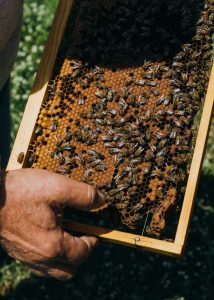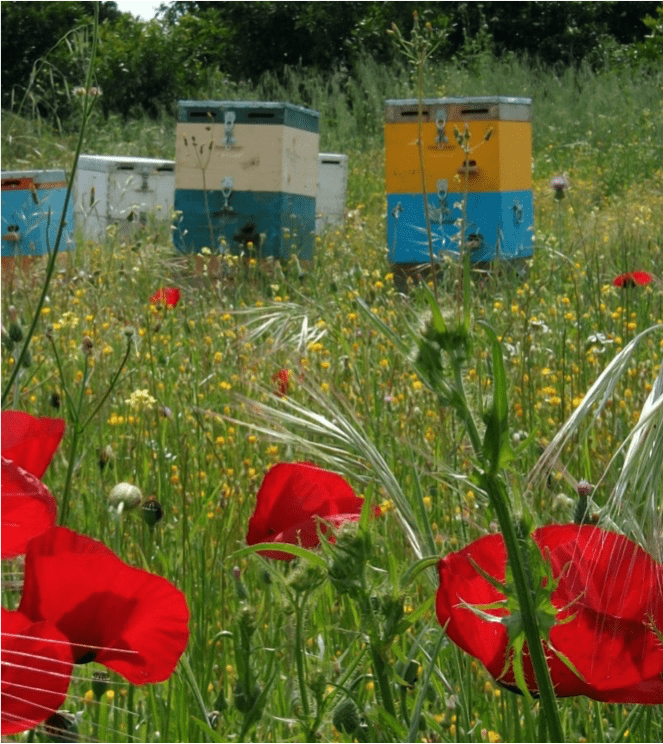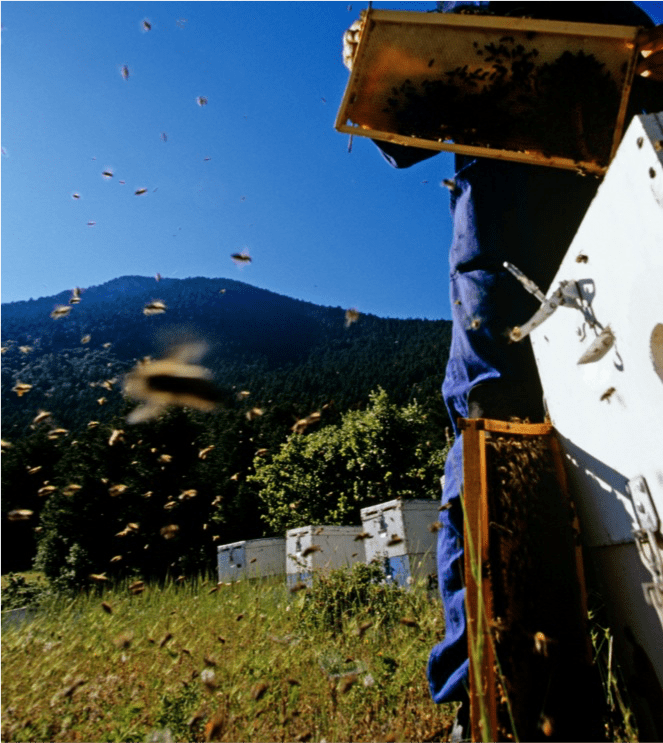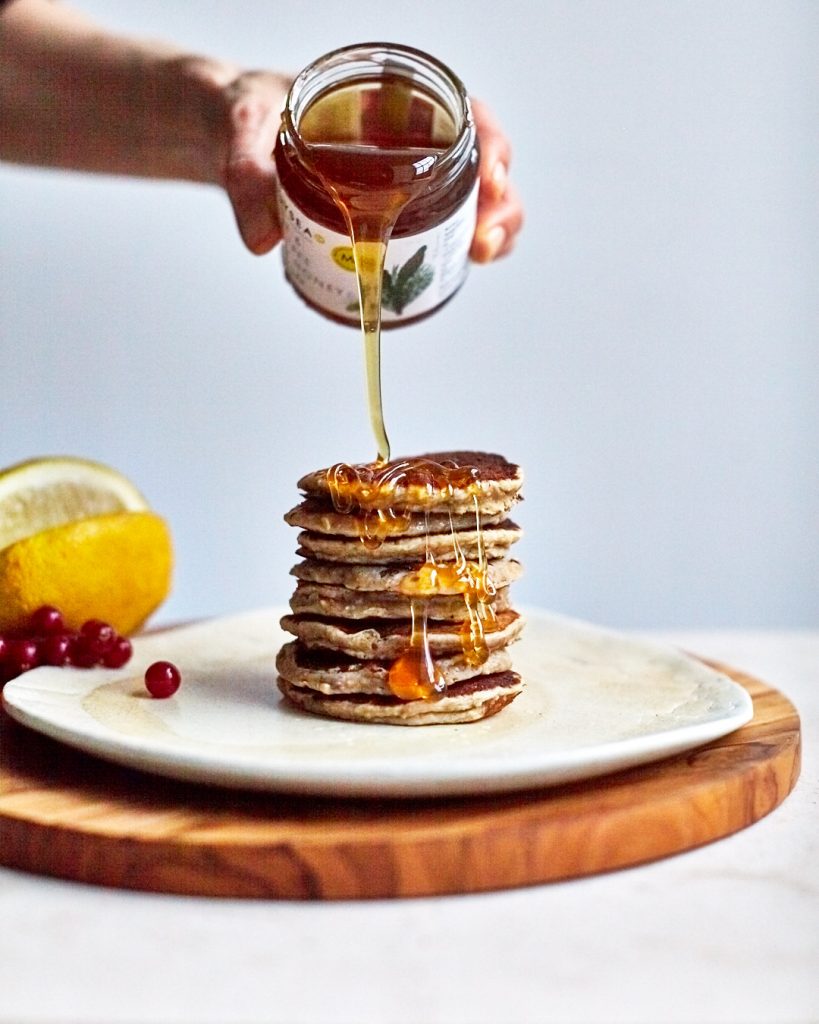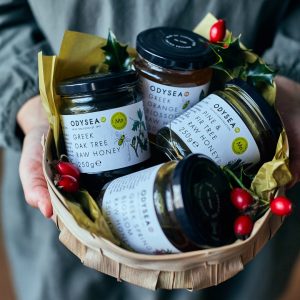What is honey?
Honey is primarily composed of fructose, glucose and water. It also contains other sugars as well as traces of enzymes, minerals, vitamins and amino acids.
The composition of honey depends greatly on where the bees collect their raw materials. There are two key sources; bees can collect nectar from flowers, which generates nectar honeys. Or, they collect the sweet secretions of aphids and other insects feeding on plant sap, called honeydew, which creates honeydew honeys.
Recently attention has been drawn to the antioxidant content of honey. A study of 36 Spanish honeys* from different floral origins revealed that honeys generated by bees feeding on honeydew have greater antioxidant properties than those produced by bees feeding on nectar. The darker honey, produced when bees collect honeydew from plants, was found to contain more antioxidants than other forms of honey.
Naturally occurring antioxidants are important ingredients of many foods. Research shows that consuming more anti-oxidant rich foods may help protect against cellular damage. Honey is one source of antioxidants.
The colour and flavour of honey depends on the source visited by the bees. The colour of honey ranges from nearly colourless to dark brown, while flavours vary from delectably mild to distinctively bold. Generally, lighter coloured honey has a milder taste than dark coloured honey, which is stronger in flavour.
What is raw honey?
Raw honey is untreated, cold-extracted and only minimally filtered; it’s essentially exactly what the bees produce inside their hives with no alterations. Mainstream honeys are often pasteurised to increase their shelf-life, but this extreme heat processing reduces the honey’s nutritional content and complexity. Raw honey is simply passed through a coarse mesh and bottled in all its pure, golden glory.
 Why is Greek honey special?
Why is Greek honey special?
Greece has more beehives per acre than any other country in Europe and Greek honey is considered to be some of the finest honey in the world. This is largely due to the rich variety of Greek flora and unlimited summer sun. The biodiversity of the Greek countryside means that there are multiple types of Greek honey, each with its own particular properties and flavours.
In Greece the majority of honey produced comes from honeydew, which the bees collect from Pine and Fir trees, with the rest coming from flower nectar.
Greek un-mixed floral varieties of honey come from plants such as thyme, orange blossom, heather and chestnut, with thyme honey being unique to Greece. While mixed flower varieties usually come from aromatic plants such as oregano, wild herbs and lavender.
 Honey in history
Honey in history
Apiculture, the practice of bee keeping, dates back to at least 6000bc. Honey has been valued by the Greeks since ancient times, both as a food and medicinal source. There are innumerable references to honey throughout ancient Greek history with references for more than 40 ancient names for honey container types. Hippocrates wrote “Honey and pollen cause warmth, clean sores and ulcers, soften hard ulcers of lips, heal carbuncles and running sores.” And Aristotle believed that honey prolonged life. Greek mythology tells us that Nectar was the food of the gods in Olympus and that Zeus was raised on honey. Honey was the first sweetener used by the Greeks in their diet, and, along with the olive and grape formed the beginning of Greek gastronomy.
Other uses for honey
Honey contains anti-bacterial, anti-viral and anti-fungal substances. Honey has been used for centuries as a treatment for sore throats and coughs, and according to recent research may in fact be more effective than some over-the-counter medicines. Mixed with lemon juice and consumed slowly, honey coats the throat, alleviating discomfort. Honey can also be used as an effective anti-microbial agent to treat minor burns, cuts and other bacterial infections.
How to choose a good honey?
Whenever possible always choose a RAW honey, this will be a guarantee that the honey hasn’t been heat treated, blended or overly filtered and will be as pure as possible. Raw honey will have more flavour and beneficial properties
- Look for unblended, single-source honey
- Choose a honey that clearly shows where it comes from
- Avoid choosing honey that’s a blend of more than one country
- Avoid pasterurised honey
And…
Honey is the only food that does not spoil. Honey discovered in the tombs of Egyptian pharaohs was tasted by archaeologists and found to be still edible.
In some parts of Greece, it was traditional for a bride to dip her fingers in honey and make the sign of the cross before entering her new home. This was meant to ensure sweetness in her married life, especially in her relationship with her mother-in-law.
Odysea Honey
We love drizzling honey on everything, from cheese and figs to desserts and biscuits. We pride ourselves on our award-winning honey, all lovingly made by our beekeeper, Alexandros Gousiaris, in the Thessaly region of Greece. You can taste evocative hints of fir, oak trees, spring or orange blossom where the bees source their nectar, along with the golden light of Greece captured in every spoonful.
Did you know that everything, from harvesting our honey to labelling the jars, is done by hand? Alexandros was introduced to beekeeping by his grandmother who kept beehives in her garden, in the small village of Ilias in central Greece. We recently visited him and the 35 residents of the village who are dedicated to making our honey and pressed heirloom tomato sauce.
As Pure as it gets
Our beekeeper moves his hives about eight times a year to find the perfect blossoms for his bees. Unlike many commercial honeys which are a blend of EU and non-EU honeys, ours is harvested, produced and packed on site by Alexandros and his small team in Greece. It’s only gently warmed and very minimally filtered. This simple processing ensures a natural honey, full of beneficial enzymes straight from the hive.
Read more about our producer’s stories here.
Discover our raw artisan honey range here.
